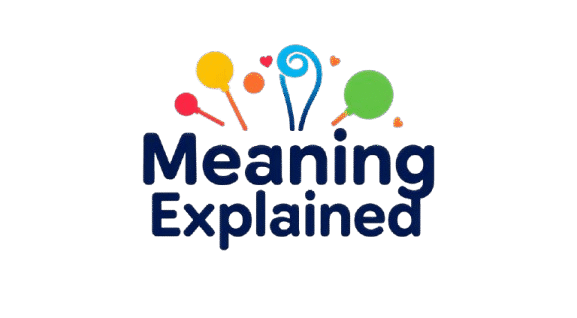The word “perdition” carries a deep and powerful meaning, often tied to ideas of loss and destruction. It’s a term that can evoke strong emotions, whether in religious discussions or dramatic stories. This guide will break down its meaning, origins, and how it’s used today in simple terms.
“Perdition” is not a word you hear every day, but it has a unique place in language. From its roots in ancient texts to its use in modern writing, it describes serious consequences or ruin. We’ll also look at “hiatus,” a word with a very different meaning, to show how language can express both heavy and light ideas.
This article will keep things clear and concise, using short sentences. It will explore “perdition” in religious, literary, and everyday contexts. By the end, you’ll understand both terms and how to use them effectively.
Understanding “Perdition”
Definition
“Perdition” is a noun meaning eternal damnation, often linked to hell in Christian theology, where unrepentant sinners face punishment after death. It also refers to complete ruin or destruction in broader contexts, evoking a sense of irreversible loss.
Etymology
The term comes from the Latin perditio, meaning “ruin” or “destruction,” derived from perdere (“to destroy” or “to lose”). It entered Middle English via Old French, maintaining its association with loss and devastation.
Religious Context
In Christianity, “perdition” signifies eternal punishment in hell for the wicked. It’s a term used in sermons and texts to stress the consequences of sin and the need for salvation.
Example: “The unrepentant face eternal perdition in the afterlife.”
Literary Usage
In literature, “perdition” conveys themes of doom and despair. Its dramatic tone suits poetry, prose, and tragic narratives, emphasizing irreversible consequences.
Example: “His greed led the empire to perdition’s edge.”
Modern Usage
Though rare in casual speech, “perdition” is used metaphorically to describe utter ruin or disaster. It adds intensity to warnings about catastrophic outcomes.
Example: “Ignoring the crisis could lead to economic perdition.”
Exploring “Hiatus”
Definition
“Hiatus” is a noun denoting a pause or gap in a sequence, process, or activity. It implies a temporary break, often with an expectation of resumption. In anatomy, it refers to a natural opening in the body.
Etymology
The word originates from the Latin hiatus (“opening” or “gap”), from hiare (“to gape” or “yawn”). Its meaning has evolved to emphasize temporary interruptions across various contexts.
Usage in Different Contexts
Professional Context: A hiatus often refers to a career break.
Example: “She took a hiatus to focus on personal growth.”
Entertainment Industry: In music or TV, it indicates a pause in production or performances.
Example: “The show is on hiatus until next season.”
Academic Context: Scholars may take a hiatus for research or sabbaticals.
Example: “He’s on a hiatus to finish his thesis.”
Anatomy: Medically, a hiatus is an opening, like the esophageal hiatus in the diaphragm.
Example: “The esophageal hiatus allows food passage.”
Alternatives to “Hiatus”
- Break
Tone: Neutral
Usage: A general term for any pause.
Example: “She took a break from studying.” - Pause
Tone: Neutral
Usage: A brief stop in activity.
Example: “A pause followed his speech.” - Intermission
Tone: Formal
Usage: Used in theater or events.
Example: “The play had a 10-minute intermission.” - Interval
Tone: Formal
Usage: A gap between events.
Example: “An interval separated the meetings.” - Sabbatical
Tone: Formal
Usage: A work break for study or travel.
Example: “He’s on a sabbatical to research.” - Recess
Tone: Formal
Usage: A break in formal proceedings.
Example: “The court is in recess.” - Time-off
Tone: Informal
Usage: Absence from work.
Example: “She took time-off to relax.” - Leave
Tone: Neutral
Usage: Authorized work absence.
Example: “He’s on paternity leave.” - Lull
Tone: Neutral
Usage: A period of calm or inactivity.
Example: “A lull settled over the debate.” - Respite
Tone: Formal
Usage: A short period of relief.
Example: “The holiday was a respite from stress.” - Interruption
Tone: Neutral
Usage: A break in continuity.
Example: “The storm caused an interruption.”
Choosing the Right Alternative
Selecting a synonym for “hiatus” depends on context and tone:
- Professional Settings: Use “sabbatical,” “leave,” or “respite” for formality.
- Casual Settings: Opt for “break,” “pause,” or “time-off” for simplicity.
- Artistic Contexts: “Intermission” or “interval” fits performances.
- Legal Settings: “Recess” is appropriate for formal proceedings.
Extended Analysis of “Perdition”

Cultural Significance
“Perdition” holds a prominent place in religious discourse, particularly in Christianity, where it symbolizes the ultimate consequence of moral failure. It appears in texts like the Bible, underscoring the dichotomy of salvation versus damnation. Its weighty tone makes it a powerful tool in sermons and theological discussions.
Literary Impact
Writers use “perdition” to amplify themes of tragedy and loss. In works like Dante’s Inferno or Milton’s Paradise Lost, it evokes a sense of finality. Its rarity in modern prose adds to its gravitas, making it ideal for high-stakes narratives.
Example: “Her choices cast her into a personal perdition, beyond redemption.”
Metaphorical Applications
In contemporary settings, “perdition” is used to describe scenarios of extreme failure, such as financial collapse or environmental disaster. It warns of consequences that are difficult to reverse.
Example: “Neglecting climate change risks global perdition.”
Synonyms and Nuances
- Damnation: Specific to religious punishment.
- Ruin: Broad, secular term for destruction.
- Doom: Suggests inevitable fate, often literary.
- Catastrophe: Highlights sudden, large-scale disaster.
Choosing the right synonym depends on whether the context is religious (damnation), general (ruin), or dramatic (doom).
Extended Analysis of “Hiatus”

Practical Applications
“Hiatus” is versatile, used across industries to describe planned or unplanned pauses. In media, it signals a break between seasons or projects, reassuring audiences of a return. In workplaces, it denotes personal or professional breaks, often tied to growth or recovery.
Cultural Relevance
In modern culture, “hiatus” is common in entertainment, where fans track show or band schedules. It also appears in academic and medical fields, reflecting its adaptability. Unlike “perdition,” it carries no negative emotional weight, focusing on temporary cessation.
Synonyms in Context
- Break/Pause: Best for casual, short-term gaps.
- Sabbatical/Leave: Suited for planned, professional breaks.
- Intermission/Interval: Ideal for structured pauses in events.
- Respite/Lull: Conveys relief or calm, often emotionally charged.
Selecting the right term ensures clarity and aligns with the intended tone.
Comparing “Perdition” and “Hiatus”
Key Differences
- Meaning: “Perdition” implies permanent ruin or damnation; “hiatus” suggests a temporary pause.
- Tone: “Perdition” is heavy and ominous; “hiatus” is neutral and procedural.
- Contexts: “Perdition” fits religious, literary, or dire scenarios; “hiatus” spans professional, entertainment, and medical fields.
- Emotional Weight: “Perdition” evokes fear or finality; “hiatus” implies hope or resumption.
When to Use
- Perdition: Use for dramatic, irreversible outcomes (e.g., “His betrayal led to perdition”). Avoid minor setbacks.
- Hiatus: Use for temporary breaks with expected recovery (e.g., “The project is on hiatus”). Avoid permanent endings.
Practical Tips for Usage
Using “Perdition”
- Do: Use in religious, literary, or cautionary contexts for impact.
- Don’t: Overuse in casual settings, as it may feel exaggerated.
- Tip: Pair with vivid imagery (e.g., “A path to perdition awaits the reckless”).
Using “Hiatus”
- Do: Specify duration or purpose for clarity (e.g., “A six-month hiatus for research”).
- Don’t: Use for permanent stops; opt for “end” or “termination.”
- Tip: Match synonyms to context (e.g., “intermission” for theater, “sabbatical” for academia).
Conclusion
“Perdition” and “hiatus” are powerful words with distinct meanings. “Perdition” warns of eternal damnation or total ruin, fitting religious and dramatic contexts. “Hiatus” describes a temporary pause, used in work, entertainment, or medical fields. Both enrich language with their unique tones.
Understanding these terms helps you communicate clearly. Use “perdition” for serious, irreversible outcomes and “hiatus” for brief breaks.

